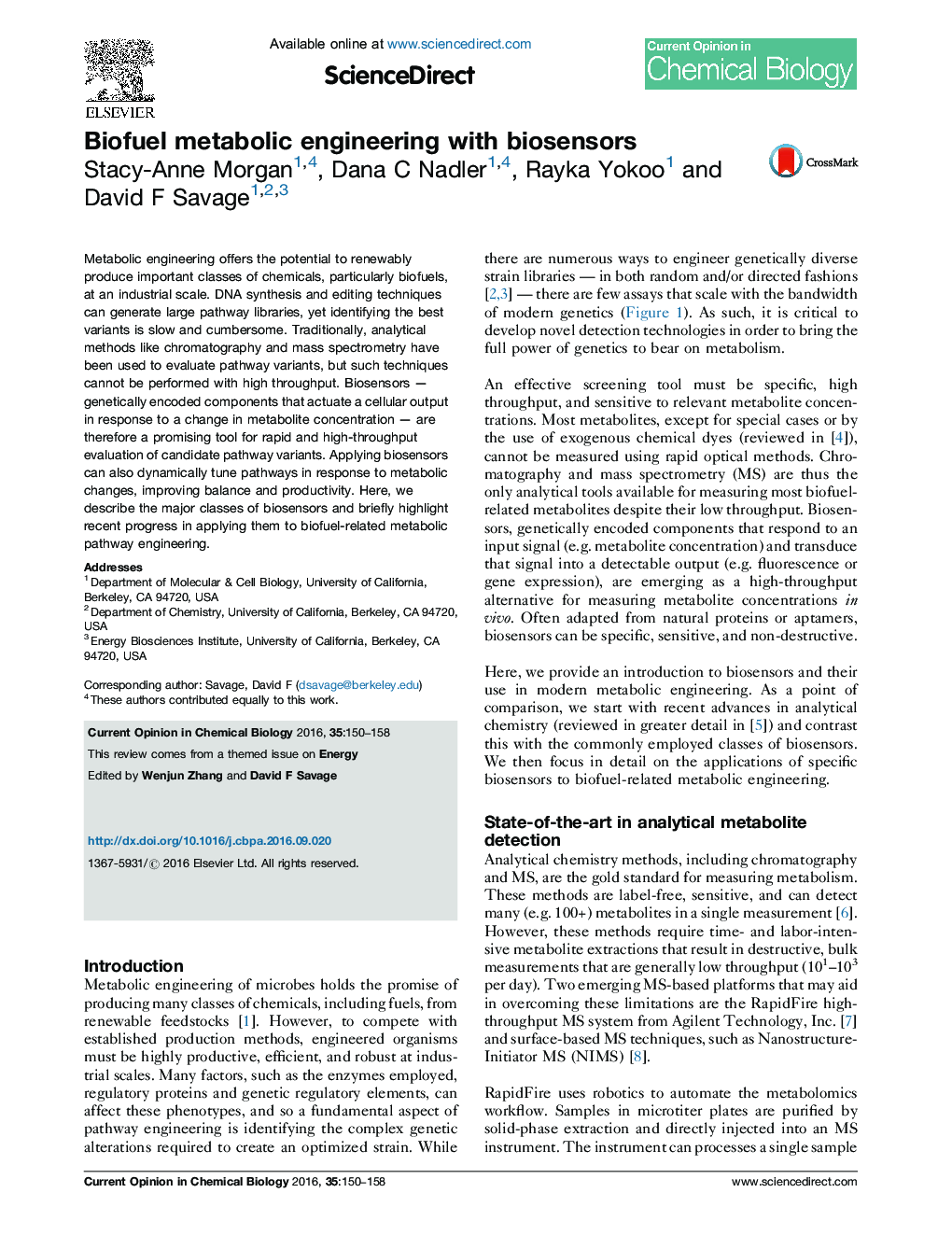| Article ID | Journal | Published Year | Pages | File Type |
|---|---|---|---|---|
| 7694031 | Current Opinion in Chemical Biology | 2016 | 9 Pages |
Abstract
Metabolic engineering offers the potential to renewably produce important classes of chemicals, particularly biofuels, at an industrial scale. DNA synthesis and editing techniques can generate large pathway libraries, yet identifying the best variants is slow and cumbersome. Traditionally, analytical methods like chromatography and mass spectrometry have been used to evaluate pathway variants, but such techniques cannot be performed with high throughput. Biosensors - genetically encoded components that actuate a cellular output in response to a change in metabolite concentration - are therefore a promising tool for rapid and high-throughput evaluation of candidate pathway variants. Applying biosensors can also dynamically tune pathways in response to metabolic changes, improving balance and productivity. Here, we describe the major classes of biosensors and briefly highlight recent progress in applying them to biofuel-related metabolic pathway engineering.
Related Topics
Physical Sciences and Engineering
Chemistry
Chemistry (General)
Authors
Stacy-Anne Morgan, Dana C Nadler, Rayka Yokoo, David F Savage,
